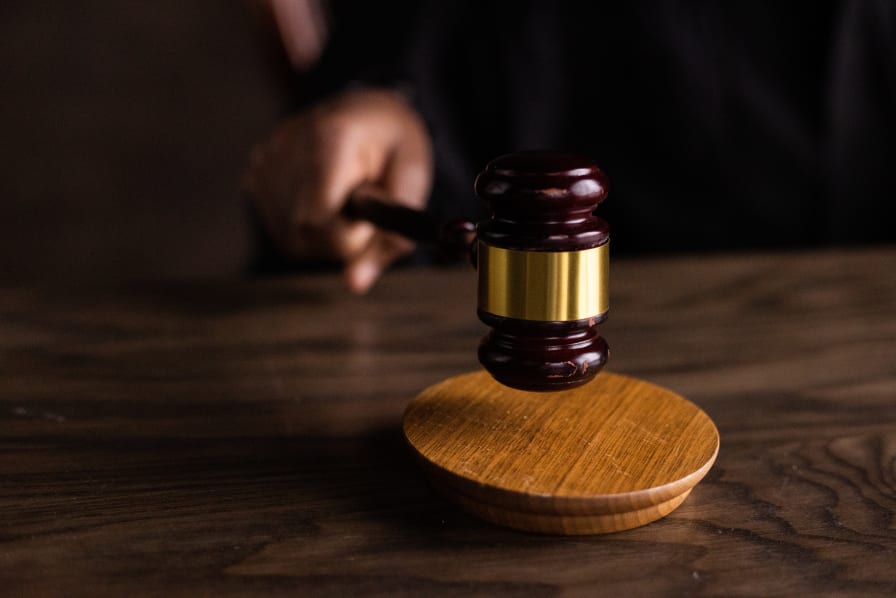If you’ve ever asked yourself, can I serve on jury duty afterDWI felony, you’re not alone—and the answer isn’t as simple as checking a box. A felony DWI conviction can change your rights in ways many people don’t realize. And one of the first civic duties it may impact? Jury service. Jury duty may not seem like a big deal until you’re summoned—or until you want your full rights back and realize the law still sees you differently.
This guide breaks down what the law really says about jury eligibility after a felony DWI, with an analytical but easy-to-follow tone. We’ll explore what makes someone ineligible, when and how rights can be restored, and how real people have navigated the blurry line between punishment and reintegration.

Understanding Jury Service Eligibility in Texas
Let’s start by looking at how jury eligibility is determined in Texas, where many DWI felony convictions occur. According to the Texas Government Code § 62.102, to serve on a jury, you must:
- Be at least 18 years old
- Be a U.S. citizen
- Be a resident of the county where you’re summoned
- Be of sound mind and good moral character
- Be able to read and write
- Not have been convicted of a felony—or, if convicted, have had your rights restored
That last point is critical when you’re asking, can I serve on jury duty after DWI felony? A DWI that results in a felony conviction immediately disqualifies you from jury service—unless your rights have been restored.
What Makes a DWI a Felony in Texas?
In Texas, most first and second DWIs are misdemeanors. But there are situations where a DWI gets bumped up to a felony level:
- Third or subsequent offense
- DWI with a child passenger
- DWI causing serious bodily injury (Intoxication Assault)
- DWI resulting in death (Intoxication Manslaughter)
If you’re convicted under any of these, you’re now dealing with a felony DWI, and that changes how the law sees you—including your eligibility for civic duties like serving on a jury.
Real-Life Example: Carlos and the Courtroom
Carlos had two priorDWI convictions when he was arrested for a third time in Travis County. It was classified as a third-degree felony, and he served time. Ten years later, Carlos had turned his life around—stable job, sobriety, family life. When he received a jury duty summons, he was excited to serve.
But when he checked the disqualifiers, he realized his felony record could still be a barrier. So he asked: Can I serve on jury duty after DWI felony if I’ve been clean for a decade?
The answer, legally, depends on whether his civil rights had been restored—which brings us to the next key concept.
Civil Rights and Felony DWI Convictions
Once you’ve been convicted of a felony in Texas, you lose certain civil rights:
- The right to vote (restored after sentence completion)
- The right to possess firearms
- The right to hold public office
- The right to serve on a jury

Even after serving time and finishing parole, these rights aren’t always automatically restored. That’s the central issue when you’re asking can I serve on jury duty after DWI felony—it’s less about time and more about legal restoration.
How Civil Rights Can Be Restored After a Felony DWI
Here’s the good news: It’s possible to regain your rights—but it requires proactive steps. For Texas residents, there are three main options to restore eligibility for jury service after a felony DWI:
1. Full Pardon from the Governor
A full pardon restores all civil rights, including jury eligibility. This is the most comprehensive solution but also the hardest to get. You must apply through the Texas Board of Pardons and Paroles, showing evidence of rehabilitation, community contributions, and clean behavior post-conviction.
2. Judicial Set-Aside or Nondisclosure
If you received deferred adjudication (where a judge defers a finding of guilt), you may be eligible for a judicial set-aside or order of nondisclosure, depending on your case outcome. This doesn’t always apply to DWI felonies, but in rare cases it may.
3. Certificate of Restoration of Rights (CORR)
Although less common in Texas than other states, some individuals can pursue a Certificate of Restoration of Rights through legal channels to regain eligibility.
Each path is complex and comes with paperwork, waiting periods, and sometimes a hearing. But the point remains—you can serve on jury duty after DWI felony if your rights are officially restored.
Federal Jury Service: A Different Ballgame
Let’s say you’re summoned to federal court. Do the same rules apply?
According to 28 U.S. Code § 1865(b), you may not serve on a federal jury if you:
- Are not a U.S. citizen
- Are under 18
- Cannot read or write English proficiently
- Have a felony conviction without restoration of civil rights
So again, the keyword is restoration. Whether it’s a state or federal courtroom, your eligibility hinges on whether your rights have been officially returned.
Does Expungement Help After a Felony DWI?
Unfortunately, no. DWI convictions are not eligible for expungement in Texas—especially felony convictions. Even if the record is sealed under limited circumstances (like a nondisclosure for a first-time misdemeanor DWI), felonies usually remain visible and binding when it comes to jury eligibility. This means the impact of a felony DWI lingers long after the sentence is served, affecting various civil rights.
So if you’re wondering can I serve on jury duty after DWI felony by getting your record expunged, the answer is likely no—unless your conviction is overturned or pardoned. Without a formal restoration of rights, an expungement route is closed to most individuals with a felony DWI.

Storytime: When Jury Disqualification Became a Wake-Up Call
Meet Tina, a Houston resident who had a felony DWI in her early 30s after an accident that nearly took her life. She turned things around, became a youth counselor, and rebuilt her life. But when she tried to serve on a jury 15 years later, she was denied.
She said, “I thought I’d moved on. But that one checkbox on the jury form brought it all back.”
Tina’s experience highlights the emotional weight of felony DWI and how long its consequences can linger. It also shows why it’s so important to understand your rights, your status, and your legal options.
Can I Lie About My Record on a Jury Questionnaire?
Let’s be absolutely clear: Never lie on a jury questionnaire. Texas law considers this perjury. If you’re unsure about your eligibility, it’s better to consult an attorney or call the court clerk for clarification.
Lying could result in:
- Criminal charges
- Fines
- A permanent bar from jury service
- Further legal complications tied to your felony record
Even if you feel your record “shouldn’t count,” honesty is essential. Courts have databases and background checks—they’ll know.
Can a Judge Allow Me to Serve Anyway?
No. In Texas and in federal courts, a judge cannot override the statutory disqualification for a felony conviction. The only way around it is through official rights restoration. Judges follow the law—they don’t have the discretion to bend jury eligibility statutes.
So if you’re thinking, can I serve on jury duty after DWI felony if the judge understands my story, the legal answer remains: not unless your civil rights have been legally restored.
Future Changes in the Law: Is Reform on the Horizon?
Some states have already reformed their jury laws to allow people with past felony convictions to serve after time has passed. As criminal justice reform efforts gain traction, it’s possible that Texas could follow suit in the future. But for now, the law is firm and continues to disqualify felons unless their rights are formally restored.
In fact, Texas is one of the stricter states when it comes to felon jury service. And while many see DWI as a non-violent offense, the felony designation carries the same jury disqualification as other crimes. This approach reflects Texas’s broader tough-on-crime posture, especially in matters involving public safety.
This reinforces how deeply a felony DWI affects your civic life—and why understanding the long-term impact is so important. Knowing the lasting legal consequences helps individuals make informed decisions and consider pathways toward restoring their full rights.

Final Thoughts: Can I Serve on Jury Duty After DWI Felony?
So, can I serve on jury duty after DWI felony? The honest answer is: not unless your civil rights have been formally restored. A felony DWI conviction, whether it occurred last year or decades ago, blocks your eligibility under both Texas and federal law. However, there is a path forward. Restoration through a pardon, judicial relief, or certificates of rights can open the door again—but only with effort and documentation. Understanding these options empowers you to take control of your post-conviction journey and reclaim important civic roles.
This issue isn’t just about civic duty—it’s about dignity. Jury service is more than a task; it’s a symbol of restored citizenship. And for many, taking the steps to serve again is one way of rewriting the story after a DWI. By navigating the legal process with purpose, you prove that a past mistake doesn’t have to define your future.

